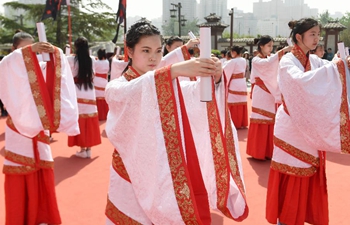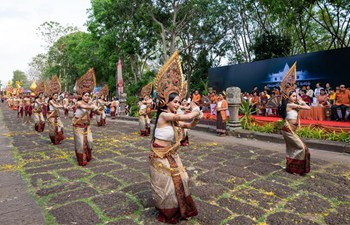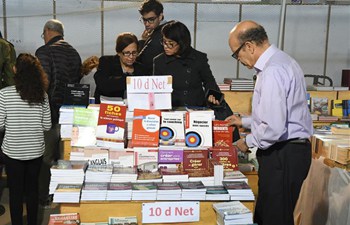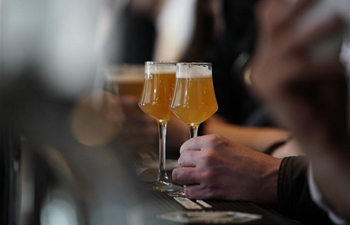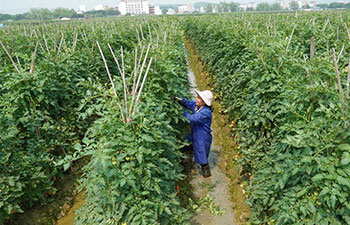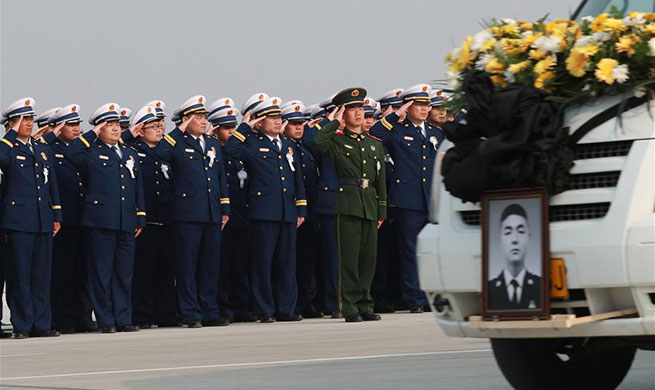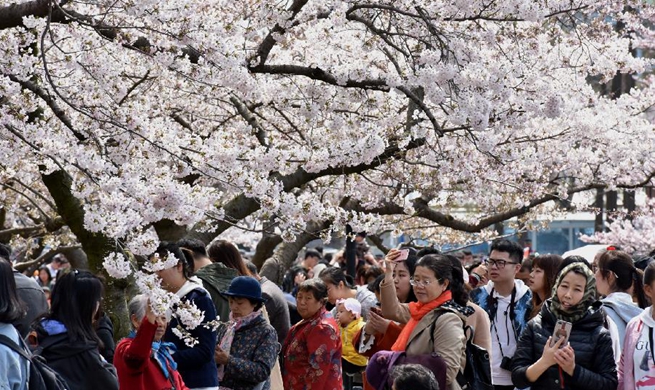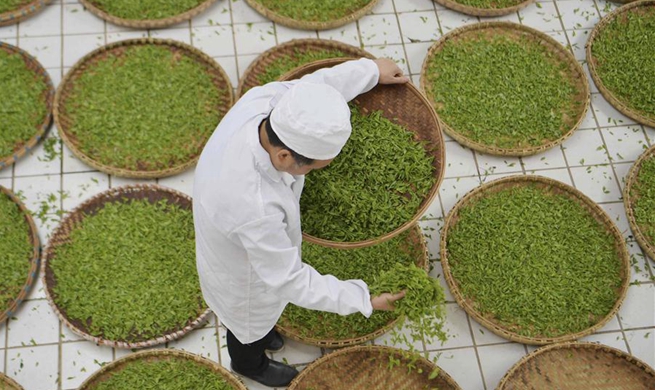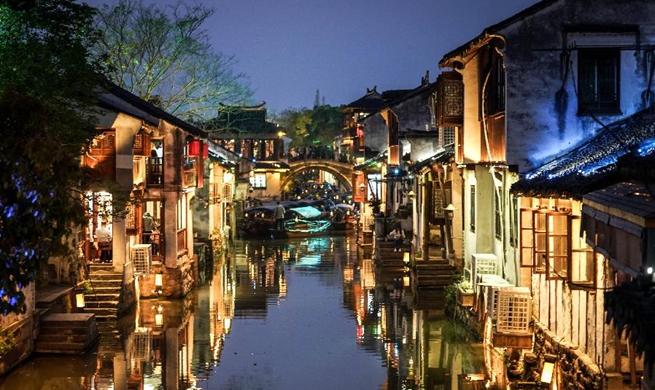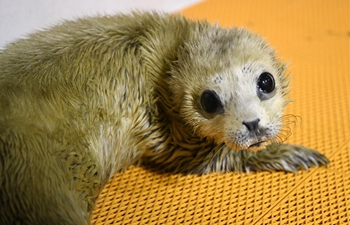BOGOTA, April 6 (Xinhua) -- What if a guerrilla fighter spends most of his or her life engaging in warfare and then peace arrives overnight? Some former leftist rebel group members in Colombia chose an honest living with an aromatic bouquet.
In disarmament zones at the Midwestern town of Icononzo, ex-members of Colombia's Revolutionary Armed Forces (FARC) are brewing organic beer in small batches. Under the supervision of the Colombian Armed Forces, they receive such training as a way to smooth the transition to ordinary life.
These rebels-turned-entrepreneurs have learned the ins and outs of beer brewing. Today they have a biweekly production of 500 bottles of La Roja wine that is purchasable in many parts of the South American country.
Now reaching 150 liters, "we plan to increase the production to 300 liters and then to 1,000 liters with financial resources that organizations provide us in solidarity," 32-year-old Ruben Dario Jaramillo Cardona, leader of the project and a former FARC veteran, told Xinhua.
Colombia was once troubled by long-running conflicts between government forces and armed opposition groups, including the FARC, which claimed the lives of more than 220,000 people since 1964. The FARC renounced armed warfare about two years ago to rejoin society.
For Jaramillo, the microbrewery is a success story showing what can be achieved when once opposing parts of a society decide to work together for common development.
"We have to make progress in this country, not just us ex-combatants and communities, but the Colombian state, military forces, national police, with whom we have gotten along very well up to now," Jaramillo said.
Financed through sales and voluntary contributions from community members, the project aims to help neighboring communities as it expands by bringing employment to locals.
Women, who are ex-combatants or relatives of them, also prop up the project. Maria Azucena Rojas, for example, is responsible for washing and labeling bottles.
The 2016 peace deal has brought "the joy of knowing that we can go out without any fear," the wife of a former combatant told Xinhua. "Before, it was terrible knowing what they could do to us. We were very intimidated."
According to the agreement, the training and reincorporation center as a transition would eventually be obsolete, while residents there hope that doesn't happen, saying the shelter is not merely a home, but a hotbed of entrepreneurial spirit driven by the prospect of leading a better life.
Rojas said the center has promoted community building by allowing the approximately 300 ex-rebels there to make contributions. They, for example, have cattle in a farm, "not only for our own benefits, but for other people's."
"We invite all people to come enjoy it ... enjoy a very healthy beer," said Jose Hernando Mayorga, who was a guerrilla for 31 years and now takes charge of capping and sealing beer bottles.
"If any organization or person or company wants to make a contribution to us, welcome," he said. "It would be a very big contribution to the reincorporation and the peace in Colombia."




